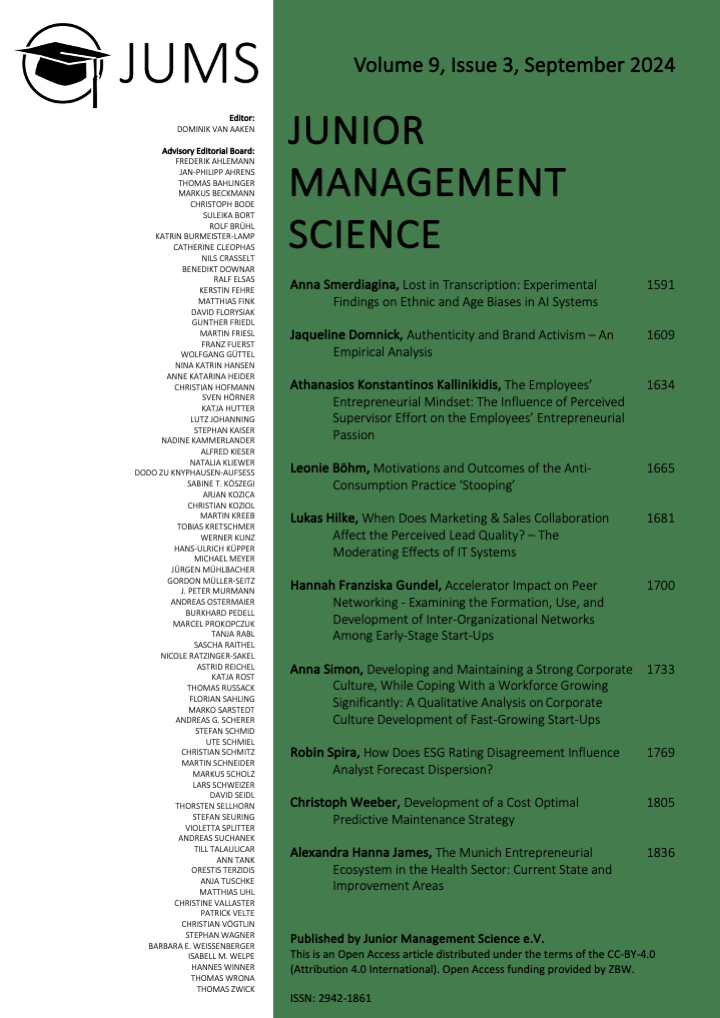Abstract
This paper examines the effect of perceived supervisor effort on the employees’ entrepreneurial passion. The study combines theories on emotional contagion, goal contagion, and self-regulation to explain the underlying mechanisms for occurring phenomena. Case-based research delivered the data to investigate the relationship between perceived supervisor effort and the employees’ entrepreneurial passion. The data revealed that proximity to the founders, entrepreneurial-relatedness of the employee’s tasks, and initial entrepreneurial passion work as antecedents of the combined mechanism of contagion and selfregulation. The findings suggest that employees are affected positively by the perception of high effort and negatively by the perception of low effort in their passion for entrepreneurship when proximity to the founders, entrepreneurial-relatedness of the tasks, and initial entrepreneurial passion are high. However, the perception of high effort can decrease entrepreneurial passion when employees were initially low passionate about entrepreneurship. This work contributes to the literature by providing a theoretical model that describes how perceived supervisor effort impacts entrepreneurial passion on an employee-level outcome.
Keywords: contagion; employee; entrepreneurial effort; entrepreneurial passion; perceived effort

This work is licensed under a Creative Commons Attribution 4.0 International License.
Copyright (c) 2024 Athanasios Konstantinos Kallinikidis

